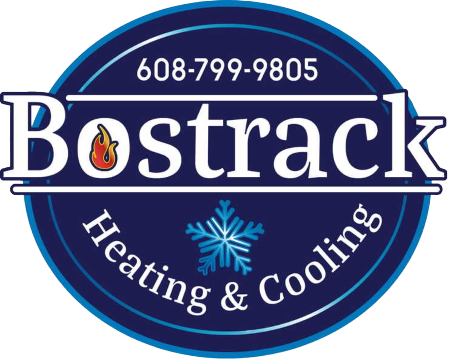General
We accept cash or check, and we have financing available.
Yes.
Expect general repairs to take approximately two hours. We'll let you know if we expect a repair to take less or more time.
People often overlook that a basement accounts for 20% of heat loss through the slab, so many people don't put insulation under the slab. However, adding insulation under the slab makes a warmer basement and reduces moisture transfer (making the basement safer for carpet).
Also, know that the tighter you make a house, the more critical air quality becomes. You'll need an air exchanger / heat recovery / energy recovery system so you have plenty of fresh air (and so when you turn on your range hood, you can still open your door!).
Furnaces
Try cycling power like you would your cell phone: turn off the power for a minute, then turn the power back on using your circuit breaker or equipment's on/off switch.
Call a professional to have it inspected.
Make sure the filter is clean (replaced regularly) and the unit is serviced annually. Don't cover registers with furniture.
Your furnace should have a precision tune-up completed annually.
How often you'll need to change your furnace filter depends on a number of factors, including the location of the furnace, the number of pets you have, the cleanliness of the house, how old the house is, whether you have carpet or hardwood floors. Check your furnace filter every 30 days. Hold it up to the light; if you can see light coming through it likely doesn't need to be changed yet. Be sure to choose the correct filter for your unit; we generally don't recommend cheap filters. And, make sure to install the filter in the proper direction: the direction of the airflow will be indicated on the filter itself, the arrow should point towards the furnace.
If you haven't been having your furnace or A/C unit serviced regularly, it won't run at peak efficiency and can shorten the unit's lifespan. Get back into the habit of having it serviced regularly to help avoid problems.
If your furnace stops working, check to ensure the breaker didn't flip. Visually inspect the venting outside to make sure it's not frozen shut or covered with snow. Check to ensure your gas meter isn't frozen or snowed in. Then, call a professional.
The average lifespan of a furnace is 15-20 years.
Furnaces are most likely to break under the highest load (in other words, when you need it most). It can sometimes be challenging to get new equipment fast and you may need to pay a premium. Best to replace it proactively before it fails.
Buying a reputable piece of equipment is important, and you can judge this by the warranty. A qualified HVAC professional will help you determine whether a single stage or two stage furnace is most appropriate for your home.
Boilers
Boilers are more expensive, but you'll need one if you want in-floor / radiant heat. We typically use them for adding in-floor heat to basements, but also often for the whole home. If you're building a home, consider having the tubing for a boiler put down before the concrete, that way you can easily add a boiler and in-floor heat later if desired. Many people don't realize how unusable basements can become in the winter - if there's not zoned ductwork or in-floor heat, the basement will be significantly colder, often a 6 to 8 degree difference from the rest of the home.
Check your boiler regularly to ensure it isn't leaking. If it is leaking, call an HVAC professional right away. In addition, if you are having to add water all the time, have it inspected. Fresh water adds minerals and oxygen, two things that can damage a boiler.
Air Conditioning
Make sure your A/C unit is kept clear of debris, the filters are cleaned, and have professional cleanings done annually.
Your air conditioning unit should have a precision tune-up completed annually.
No. Covering an air conditioner in the winter can attract mice. At the very most, place a board on top of the air conditioner and place a brick on top to secure it.
Choosing the right size of air conditioning unit for your home is key. You don't want an air conditioner that's oversized, as it won't dehumidify properly. A common misconception is that air conditioners should shut off on design days, but really, it's better to have long run times. A qualified HVAC professional will help you choose the right sized A/C unit for your property.
Ventilation
It's very important to keep your venting clean. If your clothes are being dried in one cycle, it's probably ok, but if you run a cycle that would normally dry clothes and they're not dry, look at the venting and make sure it's clear of debris. And, even if your clothes are drying normally, it's still a good idea to pull your clothes dryer away from the wall and check the venting every so often.
Bathroom fans are a great idea to improve air circulation and to help prevent mold.
In Wisconsin, bath fans can be considered a means of exhaust for your house, though they're not the best option. In Minnesota, you are required to have some form of heat recovery venting (HRV) or energy recovery ventilation (ERV) to exchange air.
